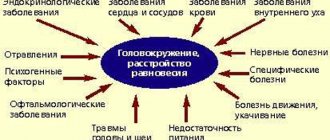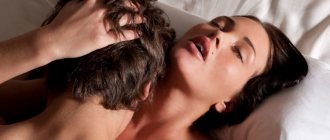I feel suffocated at night: why and what does this mean?
Sleep is a state of the human body caused by the normal functioning of the brain. For proper rest, a person needs to sleep 8 hours a day, and the 4th part of this time should be in the deep sleep stage. The shorter this phase, the more difficult it is for the body to recover.
Some people wake up at night from lack of air. They are scared and do not understand what is happening to them. The reason for this phenomenon is the cessation of respiratory movements - apnea (ancient Greek ἄπνοια - calmness, lack of breathing). Sometimes several such attacks occur during the night, moreover, they can be repeated several times within one minute.
As a result of an attack of apnea, the amount of oxygen entering the lungs decreases, the person leaves the stage of deep sleep, and sometimes wakes up. No wonder he feels exhausted the next day.
Lack of oxygen in the blood leads to loss of strength in the morning and disruption of metabolic processes in the body. In acute hypoxia, the heart and brain are affected.
How often do you have attacks?
USEFUL INFORMATION: Jaw clenching during sleep: why does it occur and what to do about it?
A person suffocates in his sleep: all possible reasons
Lack of air during sleep is a serious problem. If a person complains: “I suffocate at night when falling asleep, it becomes suddenly difficult to breathe, I can’t breathe,” sometimes the cause is a common runny nose. However, in some cases, more serious pathologies are present, as listed below.
Obstructive sleep apnea
Cessation of pulmonary ventilation within 10 seconds, caused by a weakening of the tone of the muscles and soft tissues of the throat, as a result of which the airways are blocked and oxygen ceases to flow. A person suffering from this disease feels tired throughout the day. This is perhaps the main manifestation of this pathology. If the patient is overweight, he should sleep only on his side to avoid suffocation.
Another manifestation of apnea is loud snoring that suddenly stops and then resumes again. It can signal that a person has stopped breathing.
Hypopnea
This is the next reason for lack of air. Patients complain that they seem to forget how to breathe in their sleep. This pathology manifests itself in that the airways are half blocked by soft tissues and it takes 10 seconds or more to restore breathing.
Central sleep apnea
It occurs due to disturbances in the functioning of the brain when there is a failure in the transmission of nerve impulses that cause contraction of the respiratory muscles. The brain seems to forget that the body needs oxygen, and the person briefly holds his breath and stops breathing.
INTERESTING FACTS!
- According to the dream book, if a person suffocates in a dream, this means that serious changes in life await him, and deprivation is possible. Another interpretation is being dependent on a certain person or on certain circumstances.
- From a scientific point of view, such a dream plot can be dictated by physiology: when breathing becomes difficult or stops during apnea, a person experiences suffocation in his dream. However, according to surveys and studies, patients diagnosed with sleep apnea do not see such dreams more often than healthy people.
Acid reflux
Choking occurs because the muscles that keep stomach contents from returning to the esophagus weaken. The acid gets into the throat and causes a severe cough, making it difficult to breathe. Thanks to coughing, the throat clears after some time. An important symptom of acid reflux is a sharp feeling of heartburn in the chest area, which can wake a person up.
USEFUL INFORMATION: Why do you drool during sleep?
You can get rid of the pathology by changing your lifestyle: eat small portions, have dinner four hours before bedtime. To prevent acid from the esophagus from entering the respiratory tract, it is recommended to sleep on high pillows: this way you will not suffocate.
Nocturnal asthma attacks
If bronchial obstruction occurs at night, suffocation also occurs.
The person begins to cough, cannot breathe, feels like he is suffocating. Signs of developing an attack of bronchial asthma (appear simultaneously):
- labored breathing;
- coughing;
- wheezing;
- heaviness in the chest;
- arrhythmia.
Postnasal drip
Associated with the accumulation of large amounts of mucus in the nasopharynx and usually develops against the background of a runny nose.
In certain cases, it can occur in completely healthy people. In this case, thick mucus gets into the back of the throat or the back of the nose, blocking the movement of air, and it becomes difficult to breathe. Dizziness and convulsions are symptoms indicating the presence of this pathology. They, however, can also be observed in nephropathy and multiple sclerosis. Therefore, it is necessary to undergo an examination as soon as possible to find out the true nature of the problem.
Consequences of sleep apnea for adults
Stopping breathing and subsequent micro-awakenings lead to two serious problems. Firstly, the body is under stress, experiencing oxygen starvation. Secondly, sleep is constantly interrupted, i.e. becomes fragmented, and the REM phase, which is important for restoring a person’s vital energy, is excluded. All this negatively affects physical and psycho-emotional health. Disturbed sleep causes daytime sleepiness and can cause cognitive impairment and cardiovascular disease in the long term. In especially severe cases, due to accumulated fatigue, a person becomes susceptible to spontaneous falling asleep. This can have serious consequences, especially if a person drives a car or works in a hazardous industry.
Non-invasive ventilation in CPAP and BIPAP mode is recognized as an effective method for treating obstructive and central apnea
Due to oxygen starvation, the functioning of the central nervous system, cardiovascular system and brain is disrupted. This can lead to arterial hypertension, stroke, myocardial infarction, coronary heart disease, heart failure, angina pectoris, diabetes mellitus, and obesity.
Not all respiratory arrests in adults are dangerous and require treatment. To assess whether sleep apnea poses a health risk and to decide on treatment, you need to see your doctor.
The most important thing you can do if you suspect sleep apnea in yourself or someone you love is to see a sleep medicine specialist called a sleep specialist. Tell us about your symptoms and what worries you. The doctor will order the necessary diagnostic testing, which can be performed at home or in a sleep laboratory.
The choice of tactics for managing a patient with sleep apnea is the prerogative of a somnologist. Depending on the frequency, type and cause of sleep apnea, and other factors (i.e., diagnosis), the following interventions may be recommended: drug therapy or its correction, CPAP and BiPAP therapy, oxygen therapy, or surgery .
Sleep apnea in a child
Apnea is especially dangerous in children under one year of age, which is due to the imperfection of their respiratory system. If a child suffocates during sleep, this may be due to the following reasons:
- insufficient formation of respiratory centers (in premature infants);
- birth injuries;
- gastroesophageal reflux disease (GERD);
- infections;
- anomalies in the structure of ENT organs;
- adenoids or chronic tonsillitis;
- allergic reactions to microorganisms living in pillows and bedding (the most common cause in adolescents);
- asthma;
- bronchospasm;
- runny nose;
- dry air in the room.
How to prevent sleep apnea
Under no circumstances should one ignore such a dangerous pathology as sleep apnea. Most often, the person suffering from it does not suspect anything, because he simply does not remember what happens to him at night. But close people may notice something is wrong. If you have problems breathing during sleep, the first thing to do is to find out the cause of apnea in order to choose the right treatment. To do this, you need to see a doctor and undergo a medical examination, which includes:
- Blood tests - general, lymphocytes, immunoglobulins, CEC, protein.
- Analysis of urine.
- Sputum examination.
- X-rays of light.
- ECG.
- Allergen tests.
- Appointment with an allergist and otolaryngologist.
USEFUL INFORMATION: Stepping on your heels hurts after sleep: causes and how to treat
Further action depends on the results of the examination.
- If the patient has very enlarged adenoids or tonsils, they are offered to be removed surgically. If the septum is deviated, it is recommended to have it corrected.
- When a person is obese, he is prescribed a special diet to normalize his weight.
- For bronchial asthma, long-acting bronchodilators taken in the evening will help prevent night attacks.
- If respiratory arrest is caused by a neurological disease, drug treatment is prescribed.
- To correct a weakened, flabby palate, radio waves are used (this method is considered the most effective, as it allows you to permanently rid a person of the occurrence of apnea attacks at night), liquid nitrogen and laser (not popular).
If the treatment methods described above do not help, resort to CPAP therapy. The patient sleeps in a mask, where a special device creates comfortable pressure, which allows him to breathe normally and sleep peacefully throughout the night.
Treatment for sleep apnea
The apnea treatment program directly depends on the examination results. If it turns out that sleep apnea is caused by excess soft tissue in the throat, mild forms of sleep apnea may require surgery on the roof of the mouth. For a deviated nasal septum and adenoids, a specialist may also recommend appropriate surgery.
In severe and moderate cases of the disease, surgical treatment of sleep apnea gives no more than 30% of positive results. In this situation, CPAP therapy is often the only highly effective treatment method. To carry it out, special equipment is used, with the help of which air is pumped into the respiratory tract of the sleeping person under slight positive pressure. The air straightens the airways and prevents the throat from closing.
For central apnea, CPAP therapy is also used, as well as adaptive servoventilation, BIPAP and TRIPAP therapy, which are other types of artificial ventilation.
In addition to the listed treatment methods, others are also used situationally. For example, for nasal congestion (especially often with allergic rhinitis), special hormonal drops are used, which eliminate swelling of the mucous membrane and improve breathing.
People who use sleeping pills and alcohol can sometimes cope with apnea syndrome by simply refusing to use the listed drugs and alcohol. Quitting smoking always has a positive effect on respiratory function.
There are intraoral devices, such as dental guards or baby pacifiers, used during sleep by those people whose breathing stops due to tongue retraction.
Regardless of the cause of respiratory arrest, gymnastics will be useful to strengthen the muscles of the pharynx. Weight loss can also have a significant positive effect in the vast majority of patients with apnea. Positional treatment, in which the head of the bed is raised by 10-15 centimeters using a low stand, can improve the situation with breathing during sleep.
Traditional methods of treating apnea
There are also traditional medicine recipes that help combat sleep apnea. Here are some of them:
- Before going to bed, it is necessary to free the nasal passages from the accumulation of mucus and crusts in them. To do this, it is recommended to rinse your nose with warm boiled water with the addition of sea salt.
- In the evening you need to drink a glass of freshly squeezed white cabbage juice mixed with one teaspoon of honey (you need to take the product for a month).
If you use folk recipes in addition to drug treatment, you can get rid of the problem much faster. However, before trying any recipe on yourself, you should definitely consult your doctor.
Sleep apnea treatment
The doctor makes the decision on how to treat sleep apnea based on an assessment of the clinical situation. If the cause of the disease lies in inflammation of the tonsils or the appearance of adenoids, they must be removed; if you are overweight, lose weight; if you have heart disease, consult a cardiologist; if you have excessive overhang of the uvula of the soft palate, visit a surgeon. In cases where the disease is a consequence of dysfunction of the temporomandibular joint, and this occurs quite often, the patient is referred to an orthodontist to correct the bite. Treating sleep apnea with folk remedies at home is out of the question.











